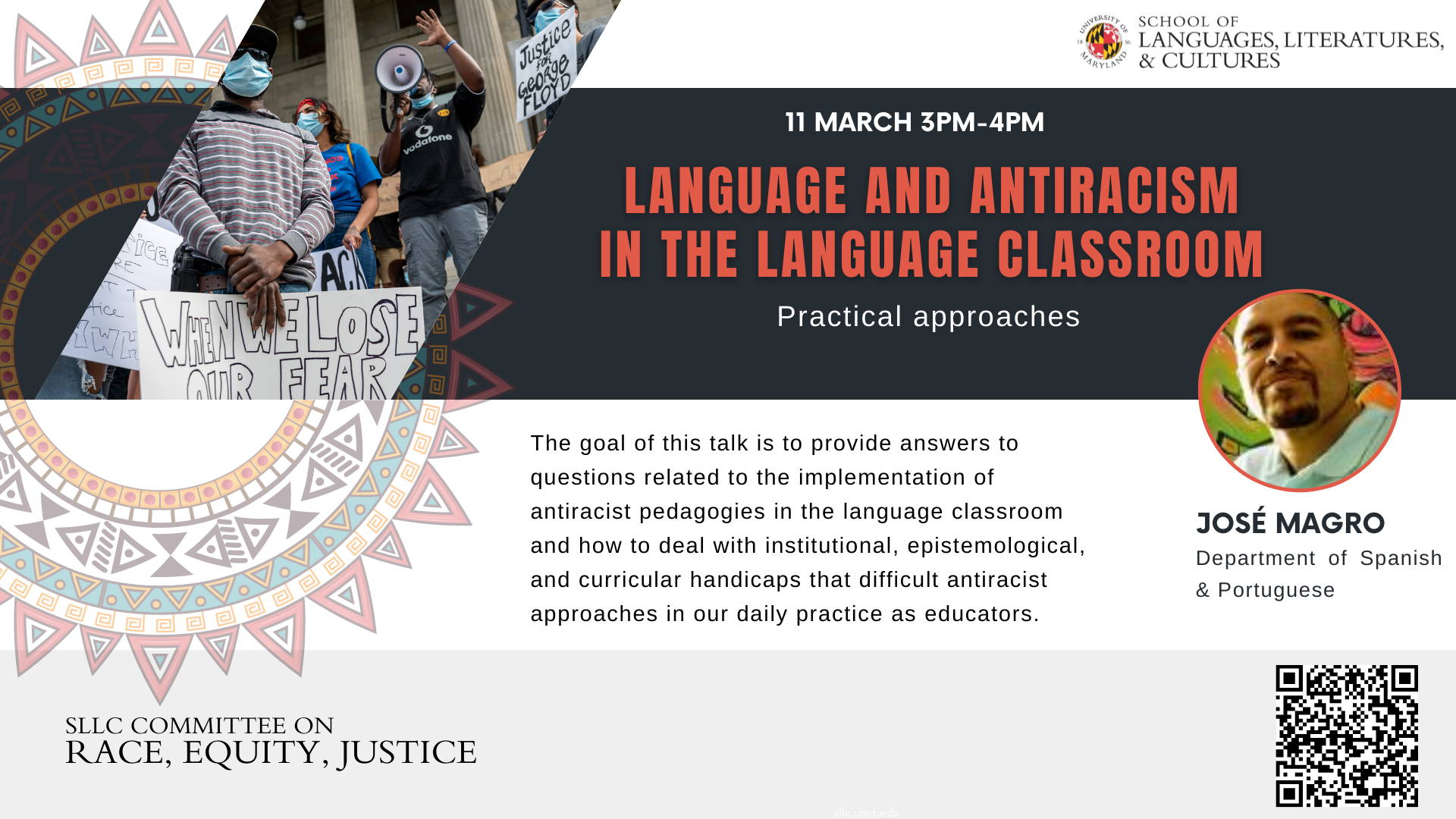Language and Antiracism in the Classroom: Practical Approaches

Language and Antiracism in the Classroom: Practical Approaches
There is an unquestionable urgency for the teaching and practice of antiracism. Antiracist pedagogies recognize historical narratives and challenge their assumptions to allow for counterstories to these majoritarian narratives (Stanley, 1998). Antiracist pedagogies in the language classroom are those pedagogies that examine the role of language in (re)producing, maintaining, challenging, and transforming asymmetric power relationships, discrimination, inequality, social injustice, and hegemony in relation to race and ethnicity (Leeman et al., 2011; Norton, 2012). After George Floyd’s public execution by police officers on May 25, 2020, this urgency has become more visible and embraced in both mainstream society and academia. However, despite the many efforts to develop antiracist pedagogies, there remains a need in the field of antiracist education: how to prepare educators to develop, articulate, and implement an antiracist pedagogical approach.
The goal of this talk is to provide answers to questions related to the implementation of antiracist pedagogies in the language classroom and how to deal with institutional, epistemological, and curricular limitations that complicate difficult antiracist approaches in our daily practice as educators.


